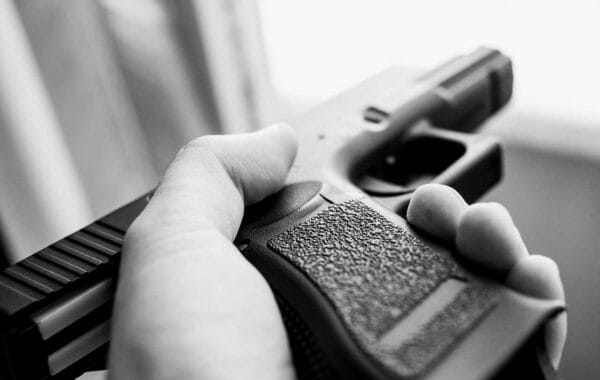
PHILADELPHIA – Firearms Policy Coalition (FPC) announced that it has filed a supplemental brief with the Court of Appeals for the Third Circuit in its Paris v. Lara case. Last month, the Supreme Court remanded the case following the Court’s Rahimi decision. The brief can be viewed at firearmspolicy.org/lara.
Paris v. Lara Case Background
The case of Paris v. Lara, currently under review, revolves around the rights of 18-to-20-year-old adults to carry firearms for self-defense under the Second Amendment. Originating in Pennsylvania, the case challenges a law barring individuals in this age group from carrying firearms during declared states of emergency unless they have a license, which they are categorically ineligible for under Pennsylvania law.
This case began in 2020 when individual plaintiffs, backed by the Firearms Policy Coalition (FPC) and the Second Amendment Foundation, argued that Pennsylvania’s law unconstitutionally infringes on the Second Amendment rights of young adults. Although the case was initially dismissed under pre-Bruen judicial standards favoring interest balancing, the Supreme Court’s Bruen decision—emphasizing text, history, and tradition as the basis for Second Amendment interpretation—shifted the legal framework and resulted in a favorable ruling for the plaintiffs at the Third Circuit Court of Appeals.
Key points of contention in this case include:
- Age-Based Restrictions: The plaintiffs argue that historical records from the Founding Era show no tradition of restricting the firearm rights of 18-to-20-year-olds, who were commonly part of state militias and required to bear arms. They assert that the Pennsylvania law arbitrarily disarms a class of adults who fall within the Second Amendment’s protection.
- Rahimi’s Impact: After the Supreme Court’s decision in Rahimi, which clarified the methodology for analyzing firearm regulations under the Bruen framework, the case was remanded. However, the plaintiffs maintain that Rahimi only reinforces the Third Circuit’s decision, as no Founding-era analogues support the contested restrictions.
- Historical Evidence: While the Pennsylvania law is defended using post-Civil War regulations, the plaintiffs emphasize that those laws were applied to minors, not adults, and were enacted too late to define the original public understanding of the Second Amendment.
- Practical Implications: The case’s outcome could influence broader challenges to age-based firearm regulations nationwide, including similar cases pending in other circuits.
The broader implications of Paris v. Lara extend beyond Pennsylvania, potentially setting a precedent for interpreting the Second Amendment’s application to young adults across the United States. As part of its mission, the FPC has positioned this litigation as pivotal in eliminating what it views as unconstitutional laws, aiming to establish a freer framework for firearm rights.
“The Supreme Court’s decision” in Rahimi “does not in the least undermine this Court’s prior judgment in this case,” FPC and its co-plaintiffs argued in the brief. “While Rahimi is instructive as an example of how to apply the framework that was first applied in [D.C. v. Heller], and made more explicit in [NYSRPA v. Bruen], unlike those cases, Rahimi did not purport to be anything more than an application of existing precedent. This Court faithfully applied that same precedent when it decided this case, so Rahimi does not require changing anything in the prior decision.”
The Lara case is part of FPC’s high-impact strategic litigation program, FPC Law, aimed at eliminating immoral laws and creating a world of maximal liberty. FPC was joined in the litigation by individual FPC members and the Second Amendment Foundation. FPC thanks FPC Action Foundation for its strategic support of this FPC Law case.
Firearms Policy Coalition (firearmspolicy.org), a 501(c)4 nonprofit membership organization, exists to create a world of maximal human liberty, defend constitutional rights, advance individual liberty, and restore freedom. We work to achieve our strategic objectives through litigation, research, scholarly publications, amicus briefing, legislative and regulatory action, grassroots activism, education, outreach, and other programs. Our FPC Law program (FPCLaw.org) is the nation’s preeminent legal action initiative focused on restoring the right to keep and bear arms throughout the United States. Individuals who want to support FPC’s work to eliminate unconstitutional laws can join the FPC Grassroots Army at JoinFPC.org or make a donation at firearmspolicy.org/donate. For more on FPC’s lawsuits and other pro-Second Amendment initiatives, visit FPCLegal.org and follow FPC on Instagram, X (Twitter), Facebook, and YouTube.
from https://ift.tt/IwumNhU
via IFTTT

No comments:
Post a Comment